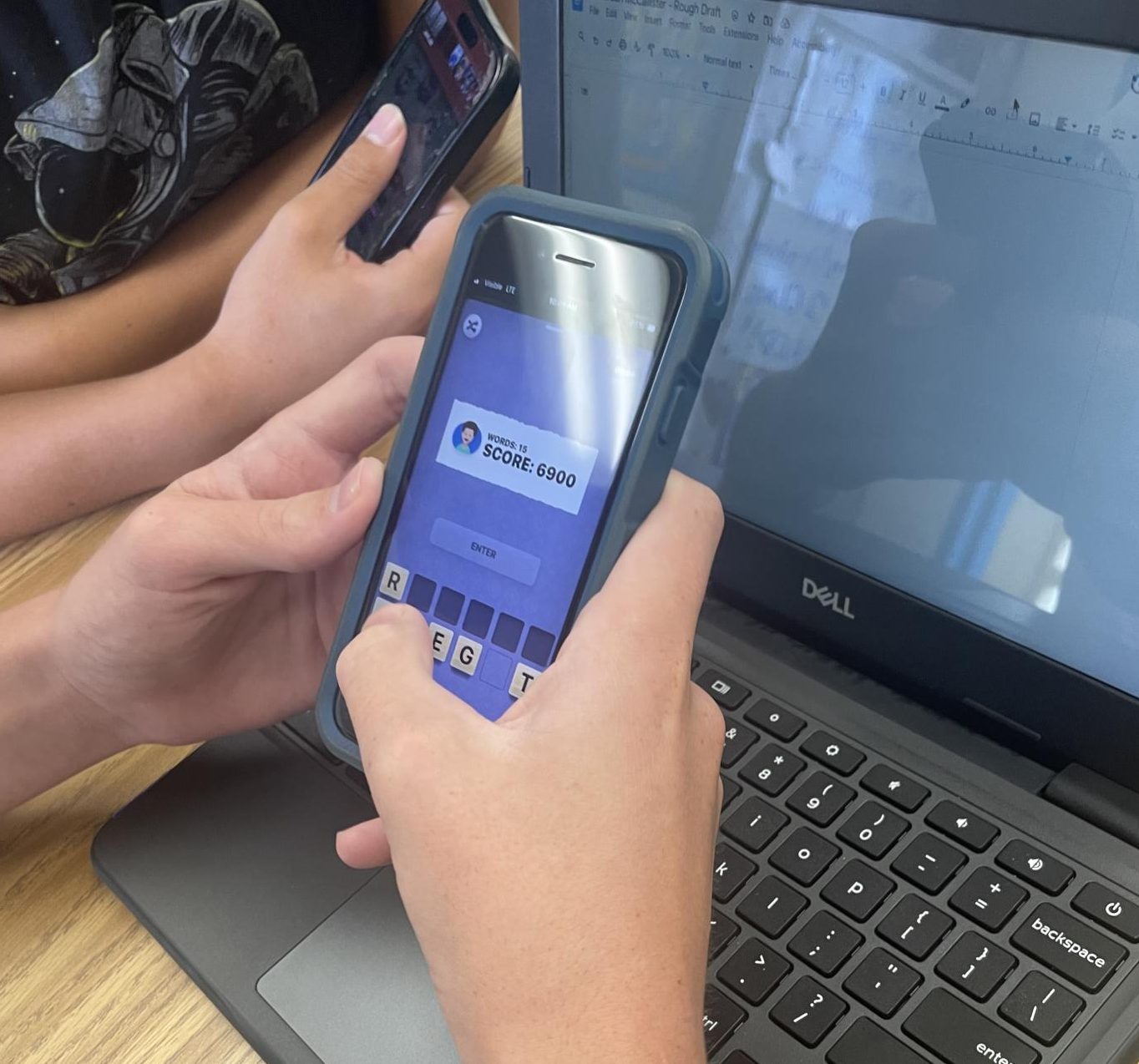Schools are facing a crisis with students being zombified by their phones in classes. Students and teachers alike at Henry J. Kaiser High School opened up on their opinions with cell phone usage in the classroom and what effect it creates on students’ education.
Phones are a big part of people’s lives and an easy addiction. A rising concern is people’s ability to balance the usage of the phones, especially students in particular.
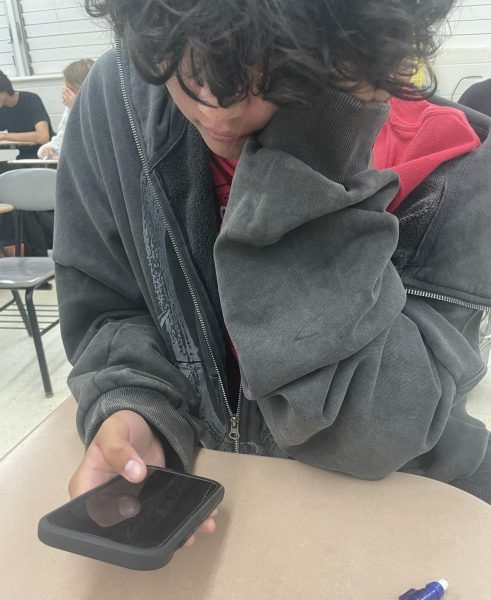
A lot of students believe that having phones in class helps them to learn; students use their phones for researching and finding information. Still, everyone can get distracted by that one message. This illustrates why the school provides Chromebooks for online assignments and research.
A sophomore student at Kaiser High School, Kaleialoha Arnett-Cook, shared his opinion on phones, saying that he thinks he agrees with the phone policy, that they should not be used in class, but at the same time he likes to listen to music while working since it helps him concentrate. Even though phones are distracting, it is something that can turn off a person’s brain, “and that is something I want to do, especially after practice when I’m tired”.
When teachers fight for students to put away their phones, it takes away class time reserved for teachers to teach and for students to learn. A Chemistry and Global Politics teacher at Kaiser High School, Riker Kasamoto’s opinion on teachers’ strict phone policies is negative because he considers that to be parenting and focusing more on phones rather than teaching. From his own experience, Mr. Kasamoto said that the moments when teachers were concerned with phone usage during class were more memorable than the actual lessons.
Still, phones do take a lot of life from us. Mr. Kasamoto thinks everyone should use phones less, and not only students but teachers and parents as well, and be able to “live more presently in the moment”. The only benefit from phones he sees is keeping students occupied so that they don’t cause trouble, but, of course, during lesson time, they should be put away.
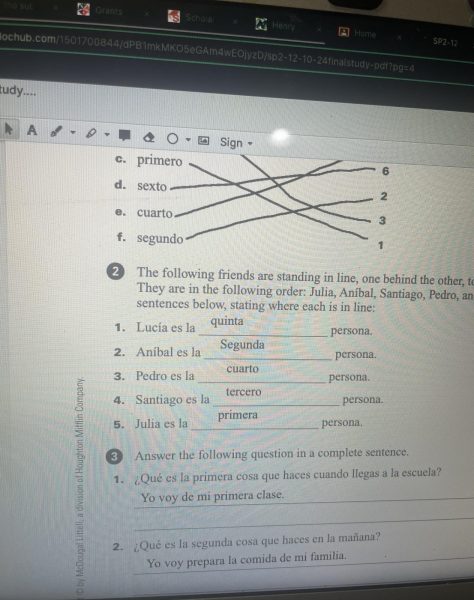
Yet, not all teachers care that much about phones in class. It does not distract them from teaching, and if the students do not want to listen, it is their choice. Martin Garcia, a Spanish teacher, partly has a similar opinion. He agrees that phones are distracting, but in some classes, such as his, he thinks phones can be helpful.
In Spanish class, students do online activities and assignments, and using phones for them can be easier for some students. Mr. Garcia also believes that students should know how to use technology; no matter how many people have a negative opinion on it, once the students enter the real world, they will need to know how use technology effectively and safely.
Again, looking on the other hand, teachers, especially the ones that taught before phones became a problem, find it hard for them to teach when they are shown disrespect. A certain amount of teachers still like to take away phones.
Mr. Garcia does not agree with those actions; he does not feel comfortable taking away students’ phones because “it is students’ personal belonging, and not something I do”.
Arnett-Cook thinks that when teachers take away phones, it is usually the student’s fault because, in his opinion, teachers take away phones for a reason. But if it is just to get students’ attention and if it is not fair for many students who are focused in class, then he thinks that is not right. Arnett-Cook thinks the reaction to phones is more prominent than the phones themselves, unless they make a noise or something noticeable.
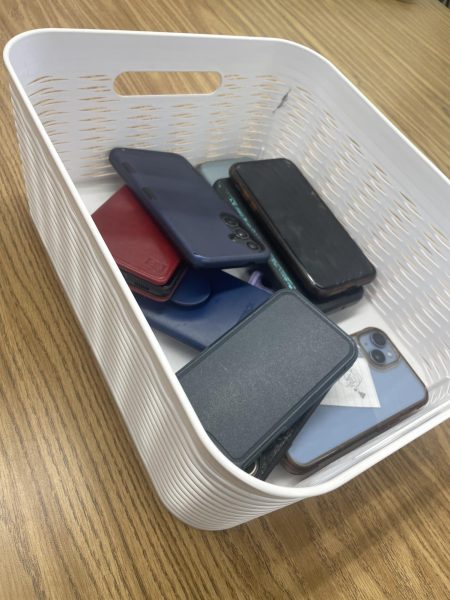
Different schools try to find different solutions for phone usage, and each teacher has their own ideas. For example, Mr. Kasamoto thinks there should be a state policy on providing teachers with phone savers and making it a requirement for everyone. A problem Mr. Kasamoto sees is that all teachers have different opinions on phones, so “not being on the same page” makes it harder to deal with it.
Mr. Kasamoto is not alone in his opinion, since a Health teacher, Jamie Psak, has the same opinion. She shares her thoughts that all teachers should stick to the same thing, “for us to be strong, we have to be together”. If the teacher is on their phone, then students will follow that and consider that normal. “If we don’t have rules at school, students will think they can break the rules outside of school,” claimed Mrs. Psak, with a bit of disappointment.
For Mrs. Psak, there is no way phones can be responsibly used in education, but in playing games, texting, watching videos, and more. Phones are also used for cheating. For example, when one class has a test, they can take a picture or text the answers to other students. Or an example of meeting with friends during class to hang out, or for other inappropriate meetings.
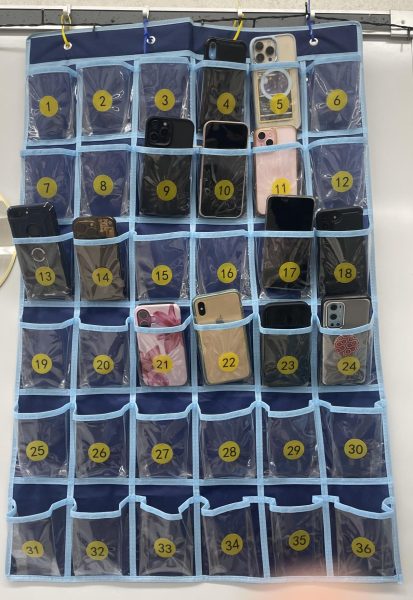
The problem of phones in class and overall school will continue to be prevalent because of the different opinions people have and share. There will always be students who will not follow the rules, but what is important is for people to learn how to balance their phone usage and not forget to live in the moment.
